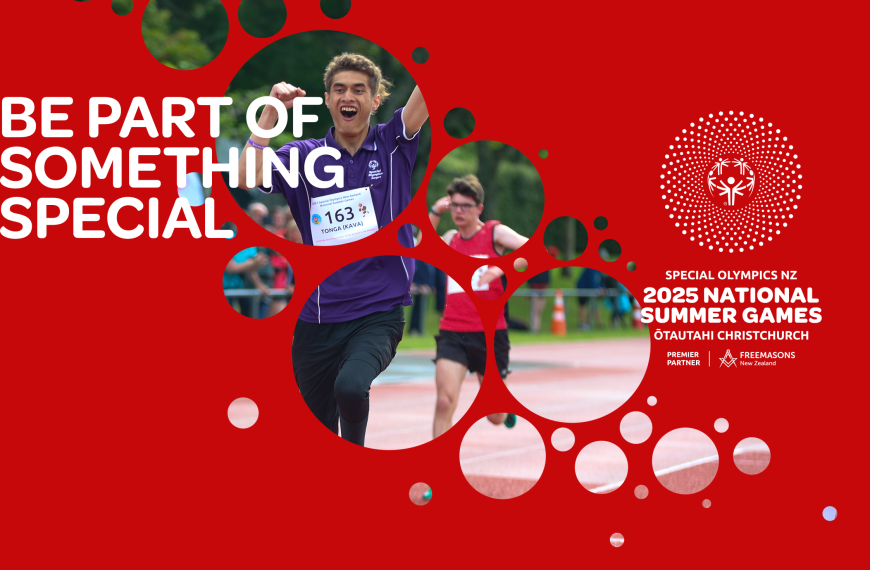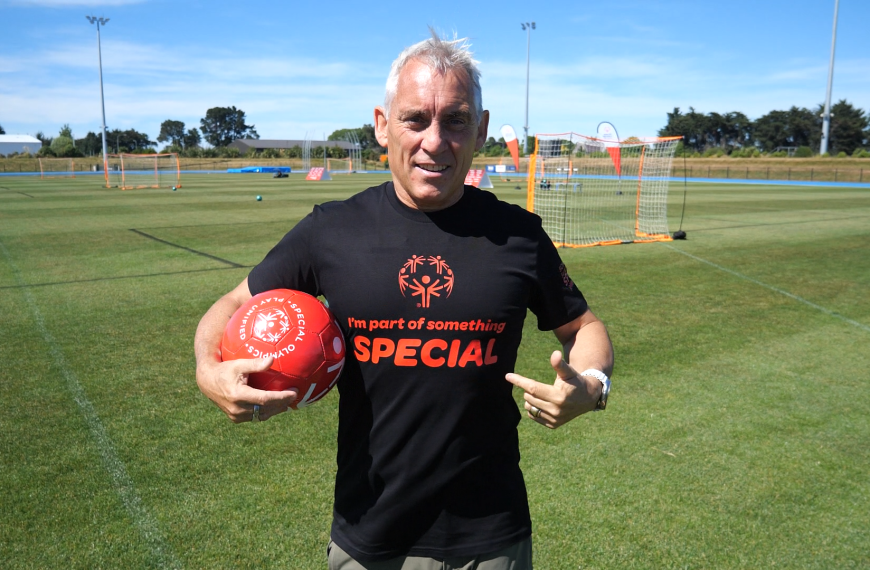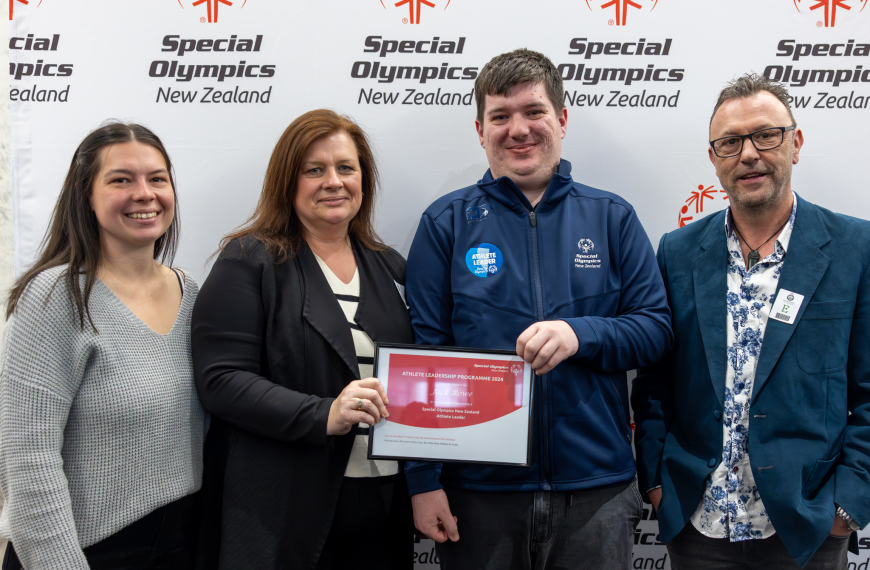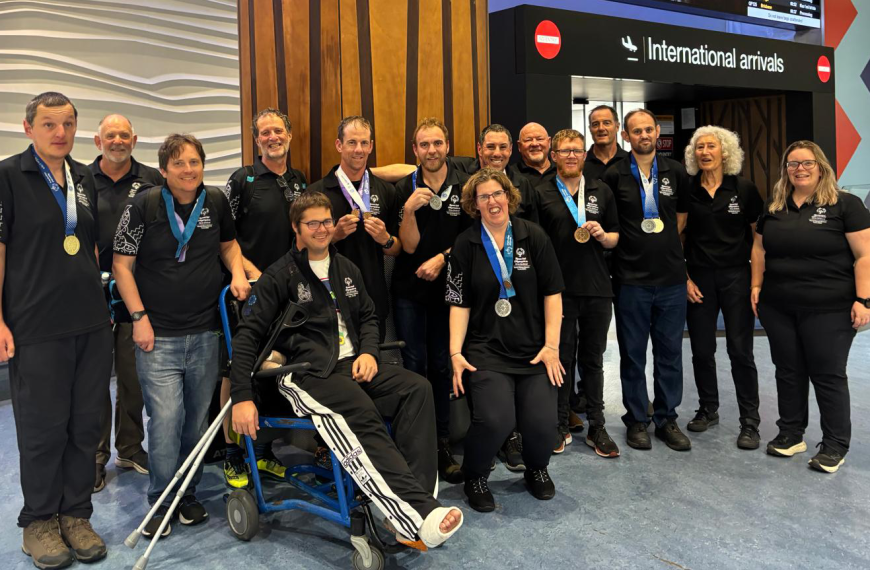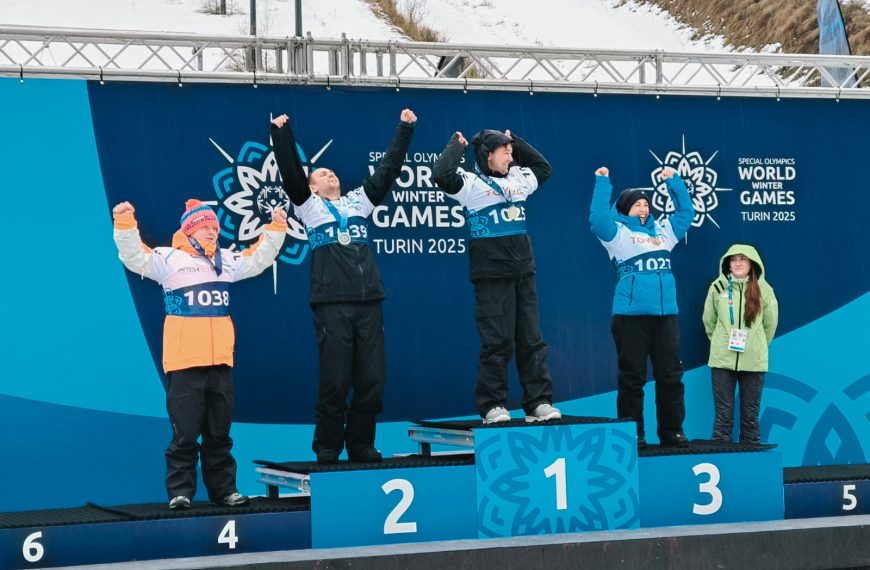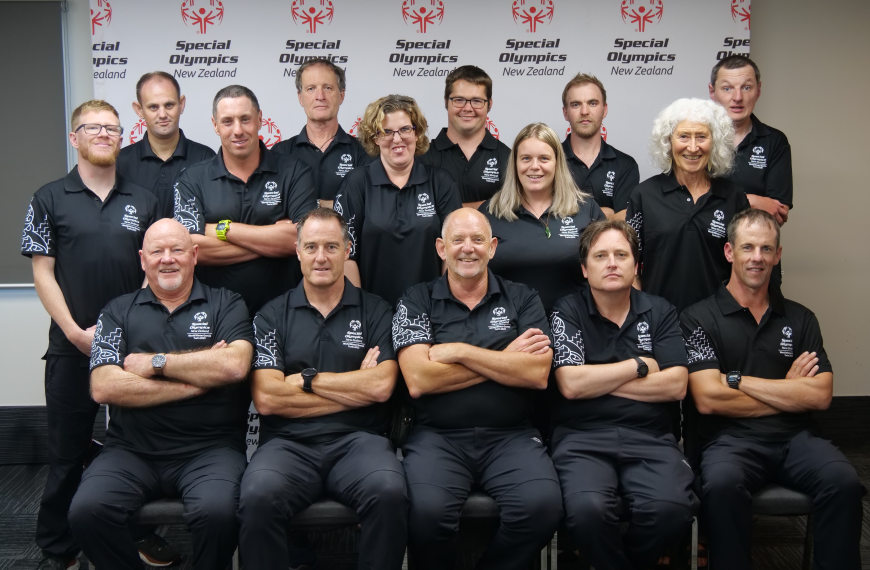Gordon Llewellyn was one of the first four athletes in Special Olympics New Zealand (SONZ) and became an icon for the organisation and an advocate for the inclusion of people with intellectual disabilities in sport across New Zealand.
His story is a remarkable one. Gordon was a swimmer in Hutt Valley, Wellington in 1982 when Grant Quinn took Gordon and three fellow swimmers, Colin Bailey, Peter Spijkerman and Brent Busy to the World Summer Games in 1983.
Attending the World Summer Games was life-changing for both Gordon and Grant who founded SONZ shortly after returning from the Games. Gordon continued to travel, train and compete and helped win mainstream acceptance of SONZ and change the public’s perception of people with an intellectual disability.
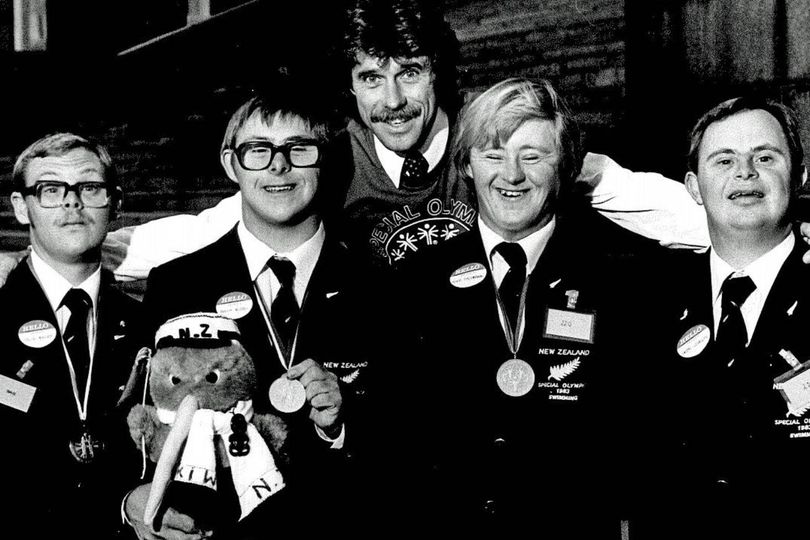
Back in 1983, when people with an intellectual disability were still widely unaccepted in the community, Gordon and his fellow three swimmers broke down barriers, with parents from across New Zealand attributing them and Special Olympics for helping them win acceptance for people with an intellectual disability.
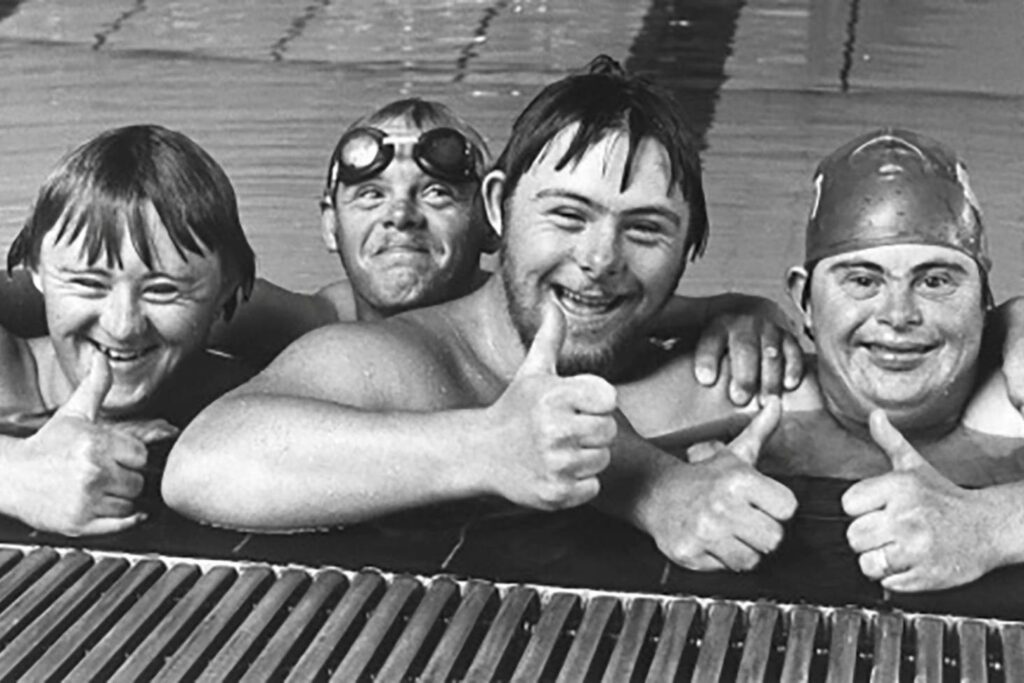
In 1983 there were four athletes.
20 years later in 1993 there were 3500 athletes.
Today in 2020 there are over 5000 SONZ athletes, over 1500 volunteers, coaches and 44 clubs across New Zealand bringing over 230 competitions and events, and over 5000 training sessions per year in 13 different sports at schools and clubs.
However there is still a long way for us to go, and we rely on the much needed support of our partners, donors and volunteers to ensure our programme can be delivered across New Zealand. In Hamilton 2021 we hold our pinnacle event the National Summer Games, bringing over 1200 athletes to compete in 11 sports across 4 days of competition. We rely heavily on partner support, in-kind support, and volunteers to lower the cost per athlete and produce a quality and life-changing event for all.
Get in touch today become a partner, volunteer or donate to us today and help us bring the benefits of sports participation to New Zealanders with intellectual disabilities.

